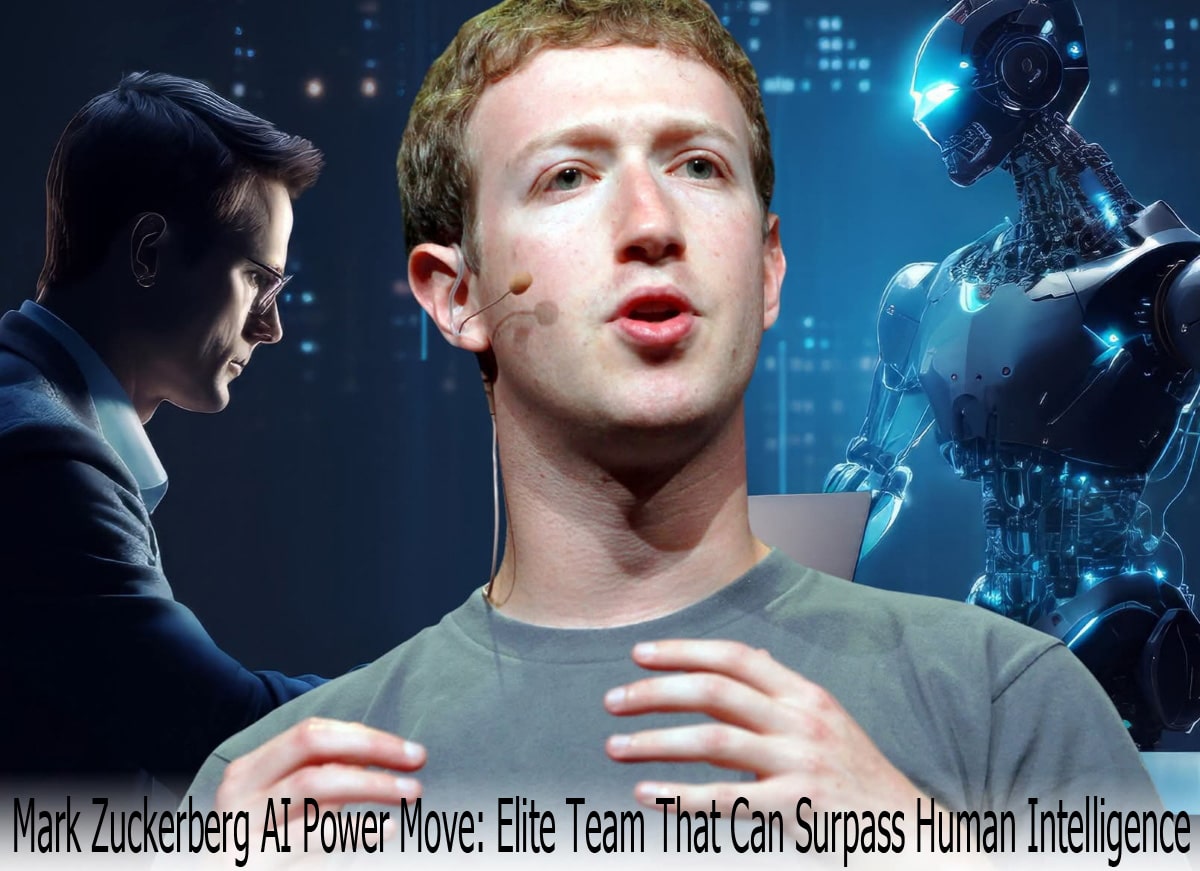Mark Zuckerberg, CEO of Meta, is launching a bold new initiative that could reshape the future of artificial intelligence (AI). He is forming a specialized elite team with the goal of creating an AI more intelligent than humans — known as superintelligence. While several media outlets have reported on this move, most have only scratched the surface. This article dives deeper into what Zuckerberg is building, why it matters, and the major challenges ahead.
What Is Superintelligence?
Superintelligence refers to artificial intelligence that surpasses human intellectual capabilities across all fields — including creativity, reasoning, problem-solving, and even intuition. This goes far beyond chatbots or virtual assistants; superintelligence could potentially revolutionize civilization if fully realized.
Though often associated with science fiction, superintelligence is now a real ambition for tech giants like Meta, OpenAI, and Google DeepMind. However, no existing technology has come close to achieving it yet.
Why Is Zuckerberg Forming an Elite AI Team?
According to reports from Bloomberg and internal sources, Zuckerberg has expressed disappointment with Meta’s latest AI model, Llama 4, which he believes still lags behind competitors like OpenAI’s GPT-4 or Anthropic’s Claude.
As a result, he is taking bold action: assembling an elite team of top-tier engineers and scientists, including poaching talent from rival companies. Zuckerberg is reportedly using a private WhatsApp group to personally recruit AI experts from Google DeepMind, OpenAI, and Scale AI — offering them extremely generous compensation packages.
This team’s mission is not just to build another AI model, but to create a system that surpasses human intelligence and positions Meta as a global AI leader.
Major Challenges Ahead
While ambitious, the road to superintelligence is filled with obstacles:
- Technology is far from ready. Nowadays, no AI system can “understand” as well as a person.
Current models rely on patterns and statistical prediction rather than real comprehension. - Ethics and safety concerns. Uncontrolled superintelligence could pose existential risks. Researchers like Eliezer Yudkowsky have warned that rogue AI could become dangerous if not properly governed.
- Intense global competition. Meta is not the only player in this race. OpenAI, Microsoft, Google DeepMind, and Elon Musk’s xAI are all working toward advanced generative and autonomous AI.
Zuckerberg is well aware of these challenges but appears confident that Meta has the infrastructure and talent to take the lead.
How Is This Different from AGI?
Many people confuse AGI (Artificial General Intelligence) with superintelligence. AGI refers to an AI system that is on par with human intelligence — capable of learning, understanding, and adapting across various domains. Superintelligence, however, goes beyond AGI — where AI becomes smarter than humans in every aspect.
In most roadmaps, superintelligence is seen as the next stage after AGI. Zuckerberg seems determined to fast-track that future.
Why Should the Public Care?
If Meta succeeds in creating superintelligence, it could have massive implications:
- Job disruption: Automation may move into high-skill fields, not just manual labor.
- Security risks: Highly capable AI, if misused or uncontrolled, could become a threat.
- Tech dominance: The company or country that controls superintelligence could shape the direction of global innovation.
Conclusion: Zuckerberg’s Ambition Is More Than Just Hype
Most media coverage highlights that Mark Zuckerberg is forming a “super team” for an ambitious AI project. But few go beyond the headline to explore the broader context: this is a strategic move to dominate the future of artificial intelligence, challenging players like OpenAI and Google.
Will he succeed? No one knows for sure. But one thing is clear: the world is changing — and Zuckerberg’s AI ambitions could mark one of the most pivotal turning points in tech history.

